Legal Expert Warns Ondo Governor Aiyedatiwa Over Delay in Constituting Full Executive Council Over two months after his swearing-in for a fresh term on February 24, 2025, Ondo State Governor Lucky Aiyedatiwa is under mounting pressure to constitute a full Executive Council, with legal experts warning that the delay may amount to a breach of
Legal Expert Warns Ondo Governor Aiyedatiwa Over Delay in Constituting Full Executive Council

Over two months after his swearing-in for a fresh term on February 24, 2025, Ondo State Governor Lucky Aiyedatiwa is under mounting pressure to constitute a full Executive Council, with legal experts warning that the delay may amount to a breach of constitutional provisions.
In a statement dated May 17, 2025, legal practitioner Vincent Adodo expressed concern over the governor’s failure to appoint commissioners beyond the two named shortly after his inauguration. He cited key sections of the 1999 Constitution (as amended), insisting that the law requires a governor to submit a list of commissioner-nominees to the State House of Assembly within 60 days of assuming office.
NNPP Apologises to President Tinubu, APC Over Kwankwaso’s Attacks
According to Adodo, the governor’s inaction runs contrary to Section 192(6)(a) of the Constitution, which mandates that commissioner-nominees must be presented within two months of the governor’s swearing-in. Additionally, Sections 192(2) and 14(4) of the Constitution stress the principles of inclusive governance and equitable representation, which Adodo argues are currently being violated.
“The current composition of the Executive Council—just two commissioners—cannot be said to reflect the diversity of Ondo State or provide a sense of belonging to all its people, as required by the Constitution,” Adodo said.
The two appointees named so far—Dr. Olukayode Ajulo (SAN) as Attorney General and Mrs. Omowunmi Isaac as Commissioner for Finance—were welcomed as a positive start. However, Adodo noted that key ministries, including health, education, works, agriculture, energy, and youth development, remain leaderless, which he described as a “state of uncertainty” for governance in Ondo.
Government’s Response: Patience and Process
Responding swiftly, Chief Press Secretary to the Governor, Ebenezer Adeniyan, dismissed the concerns raised by Adodo, insisting that Governor Aiyedatiwa has a functional cabinet.
“Ondo State has a cabinet and that cabinet is functional and meets regularly to take critical decisions on governance,” Adeniyan said. “How many governors in Nigeria completed their cabinet within two months in office? Mr. Adodo should give examples of those.”
He added that the governor would not be rushed into completing his cabinet appointments. “Mr. Governor will not be hurried into completing his cabinet. He is taking his time in picking the right people and assigning them duties. He will name them when he is ready.”
Aiyedatiwa’s approach, according to Adeniyan, is based on ensuring competence and loyalty, rather than bowing to public pressure.
However, Adodo was quick to reject any assumption that the appointment of special advisers or assistants could serve as a constitutional substitute for commissioners. According to him, while advisers may support the executive functionally, only commissioners are legally empowered to shape state policies in collaboration with the governor and deputy governor, as explicitly outlined under Section 193(2) of the Constitution.
“Appointing aides without commissioners is akin to governing without a full team,” he said. “It undermines not just legality, but also transparency and effectiveness.”
Beyond legality, Adodo stressed the need for fair representation across the state’s nine federal constituencies, warning that prolonged delay could create political alienation and deepen mistrust in the administration. He urged the governor to act in the interest of inclusive governance, ensuring that all parts of the state feel represented in the decision-making process.
“This is not merely a political oversight; it is a constitutional imperative that must be urgently addressed in the interest of democratic accountability and functional governance,” he emphasized.
Adodo concluded by calling on civil society organizations, the Ondo State House of Assembly, and well-meaning citizens to hold the governor accountable to his constitutional duties.
Observers say this brewing controversy could spark wider political tensions within Ondo State, especially among constituencies feeling sidelined by the delay. With critical sectors of the state’s economy and services in need of active leadership, the absence of commissioners raises questions about the government’s capacity to deliver on campaign promises.
While Aiyedatiwa’s defenders argue for patience, legal and political analysts agree that time is running out. As the 60-day constitutional window closes, the governor may soon be compelled to act—not just for compliance—but to rebuild public trust and ensure that governance continues without legal entanglements.



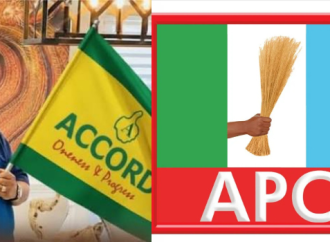

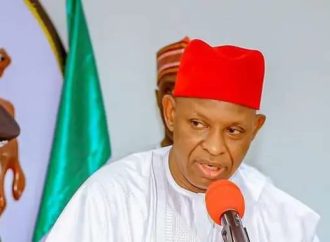
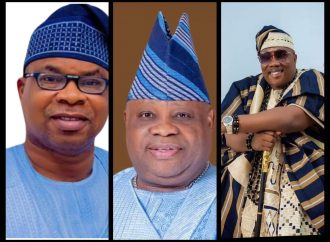
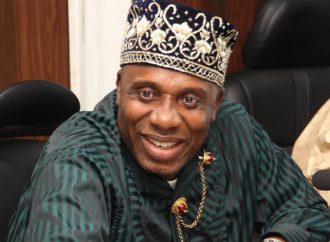





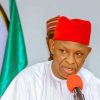
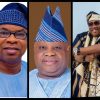






Leave a Comment
Your email address will not be published. Required fields are marked with *